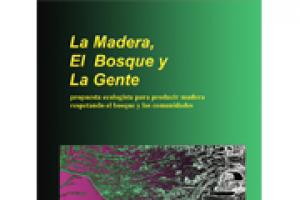Between 24 and 28 March 2009, in Heredia, Costa Rica, the World Rainforest Movement (WRM) brought together civil society organisations from around the world to address the subject of climate, forests and plantations and their interrelations with local communities.
Costa Rica
Bulletin articles
25 November 2008
On 17 December 2001, by Resolution # R-578-2001-MINAE and in a totally underhand manner, the Costa Rican Ministry of the Environment and Energy (MINAE) granted a concession for the exploitation of an open-cast goldmine using leaching with cyanide to Industrias Infinito S.A. a branch of the Canadian transnational corporation Vanesa Ventures.
Other information
18 August 2007
Tourism has come to stay in Costa Rica and, with it, ransacking and depredation of the country’s prodigious ecosystems (see WRM Bulletin 84). This is denounced by Juan Figuerola, of the Costa Rican Federation for Environmental Conservation (FECON), in a press release under the heading of “The environmental devil: lord and master of Costa Rica” (“El diablo ambiental: amo y señor de Costa Rica”, available in Spanish at http://www.wrm.org.uy/paises/CostaRica/Diablo_Ambiental.html).
Bulletin articles
19 May 2007
The Association of Ecologist Communities La Ceiba – Friends of the Earth Costa Rica (Asociación Comunidades Ecologistas La Ceiba- Amigos de la Tierra Costa Rica - COECOCEIBA- AT), which includes members from various social sectors (academics, professionals, ecologists and peasants), considers that it is time to creatively develop new models of forest cover restoration. It is time to give the opportunity to autochthonous reforestation models based on some of the basic principles that the country’s main natural ecosystem itself -the tropical forest- is silently teaching us.
Bulletin articles
26 February 2007
Costa Rica has been built as an export-oriented economy, with no political or economic independence. Export pressure on resources by the world system resulted in great inequality. Since the Kyoto Protocol, neoliberals have redefined forests as ‘oxygen generators’, a concept that Costa Rica has embraced. In this framework, local communities, especially those living in the tropical rainforests and depending for survival on the bounty provided by the forests, have seen undermined their basic support system.
Bulletin articles
5 June 2006
A computer. That is what the US citizen Paul Lambert, representative of the Tortuga Landing company offered the Ministry of Environment and Energy (MINAE) as compensation for having built a 105 metre long and 4 metres wide road and for having eliminated natural regeneration in a forest in the terrestrial maritime area of Quepos, a Central Pacific locality. This occurred during a “conciliation” hearing which took place on 17 February at the Environmental Administrative Tribunal (file No. 184-05-3-TAA).
Bulletin articles
8 January 2006
Monoculture is the main tool used by the large trans-national capitals to appropriate and control land resources and cheap labour in the countries of the South, causing enormous impacts on biological and cultural diversity. Homogenization and the dramatic simplification of the agro-ecosystem enable them to maximize soil exploitation and labour through mechanized tasks that are easy to control and supervise. Sustainability is defined on the basis of codes of profitability and depending on the crop, cycles of ten, fifteen or twenty years are completed and then the land is abandoned.
Other information
13 September 2005
Much is being said about “illegal logging.” In Costa Rica, the present government’s forestry policy has been limited to establishing, with the generous support of FAO, a team to analyze and take action against illegal logging. According to the government this is the forestry sector’s fundamental problem. Based on dubious data, the estimate was that between 25 and 35 per cent of timber consumed comes from illegal sources.
However, from the ecological standpoint, we see the need to “clarify the picture” and identify in the first place the different versions of “illegal logging.”
Bulletin articles
29 July 2004
Eco-tourism is perhaps the most over-used and mis-used word, not only in the travel industry but also in the “development” schemes of governments. But most of the time it just means tourism, the “smokeless industry” to which many southern countries, facing debt burdens and worsening trade terms, have turned in the hope that it brings foreign exchange and investment. Simultaneously, leading international agencies such as the World Bank, United Nations agencies and business organisations have been substantially involved to make tourism a truly global industry.
Bulletin articles
11 March 2004
Mining is one of the activities that international allocation of labour has imposed on the countries of the South, rich in natural resources. However, in no case has it led to the general welfare of the country; on the contrary, it could be considered a curse (see WRM Bulletin No. 71).
In Costa Rica, the Gold-mining Opposition Committee has been active in denouncing the numerous and devastating impacts of mining, related to mining in itself, the elimination of mine waste, transportation of the mineral and its processing, often involving or producing hazardous materials.
Bulletin articles
17 October 2003
The Government qualified as a joke the intention of the Harken Energy oil company to claim, through arbitration, 57,000 million dollars from the country. The company filed a request for arbitration with the International Centre for Settlement of Investment Disputes – ICSID. This body is attached to the World Bank and has its headquarters in Washington, USA.
Other information
2 September 2003
Only available in Spanish - By Javier Baltodano

